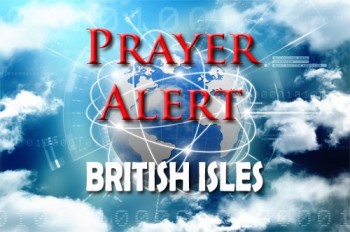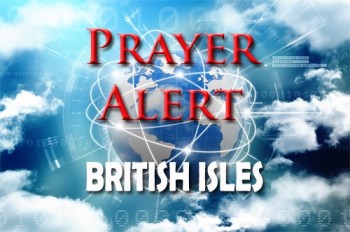Displaying items by tag: Hassan Rouhani
Iran: Nazanin’s future still unclear
On 10 March Boris Johnson phoned Iran’s president, Hassan Rouhani, to tell him the British-Iranian aid worker Nazanin Zaghari-Ratcliffe must be allowed to return home to be with her family as she finished her five year prison sentence on 7 March. He said that while the removal of her ankle monitor was welcome, her continued confinement remains completely unacceptable. Rouhani complained to Johnson that no practical progress had been made in solving Iran’s demand for the UK to return a £400m debt. Nazanin now faces a new court date. Shadow foreign secretary Lisa Nandy said, ‘When I meet this family I feel there's not much more they can take of this, to be honest. Other countries have made more progress in getting their nationals home. We need to see a real concerted effort now.’ See
Iran: 200+ killed, hundreds arrested
Iran's president Hassan Rouhani has called for the release of unarmed and innocent people arrested during the two weeks of protests in over 100 cities and towns after a 300% fuel price increase. The protests have now turned political as young and working-class protesters demand that religious leaders step down. Iran's leaders, blaming 'thugs' linked to the USA, Israel, and Saudi Arabia, have urged the country's judiciary to mete out harsh sentences to those involved in the demonstrations. Amnesty International reported at least 208 deaths on 2 December. Demonstrations and deaths have continued since then. Amnesty says that families of victims were threatened and warned not to speak to the media or hold funeral services. It added that the death toll is evidence that Iran's security forces went on a horrific killing spree, and urged the international community to help ensure accountability. See
Iran’s piracy and British ships
Currently events in the gulf are operating just below the threshold of all-out war between Iran and the UK/USA over the Straits of Hormuz. On 24 July Al-Jazeera reported that President Rouhani has suggested that, if the United Kingdom releases its tanker seized off the coast of Gibraltar earlier this month, his country will return a British-flagged vessel it apprehended last week. Rouhani made the purported offer during a weekly cabinet meeting, assuring an ‘appropriate response from Iran’ if the UK stepped away from the ‘wrong actions in Gibraltar’. Boris Johnson will immediately have to deal with the crisis over Iran and the deployment of a European-led maritime protection mission which the previous Foreign Secretary Jeremy Hunt announced on 22 July. Six tankers have been sabotaged in six weeks: see
Iran: Rouhani threatens to break nuclear deal
President Hassan Rouhani has said that on 7 July his country would exceed the 3.67% uranium enrichment limit set by the 2015 nuclear deal by ‘as much as necessary, as much as we need’. Iran will reverse this action if the other parties to the deal - Britain, China, France, Germany and Russia - abide by their commitments. The agreed enrichment limit is sufficient for power generation, but far below the 90% level needed to manufacture nuclear weapons. Rouhani also said Iran would restart construction of a heavy water reactor, and bring it to the condition that ‘according to you, is dangerous and can produce plutonium’. Iran has often threatened such action unless it gets some relief from the sanctions imposed on the country. The five other signatories of the deal are struggling to keep it afloat after US president Donald Trump walked out of it last year.
USA offers Iran help (?)
US secretary of state Mike Pompeo extended condolences to the victims of the floods in Iran, and said his country was prepared to help. But in a sign that the offer may have been less than serious, he did so in a statement blaming Iranian mismanagement for the flooding, and without explaining how assistance could be directed to Iran without violating US sanctions. Pompeo rejected a claim by Iran that the sanctions were preventing donations to its Red Crescent. He said the USA was ready to contribute to international charities which could then forward the money to the Red Crescent for relief.




